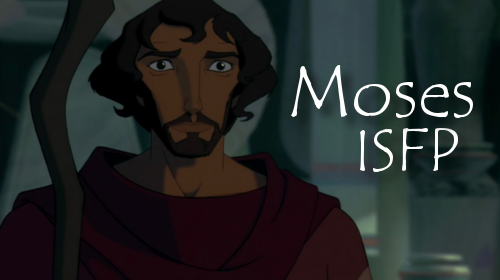ISFP, The Composer, The Seeker, The Virtuoso
There seems to be a common knowledge among MBTI/pop-culture enthusiasts that the most popular heroic types are ISTP and INFP. You have your scrappy, action-hero everyman in the ISTPs—John McClane, Han Solo, every scruffy military video game protagonist—and your starry-eyed, moral idealist in the INFPs—Luke Skywalker, Daenerys Targarean.
However, as I’ve read through my favorite MBTI blog lately, I’m beginning to think that ISFPs might be the front runner for most popular heroic type. For one thing, a lot of heroes that have been typed as INFPs are actually ISFPs, Luke Skywalker being the best example. One famous–and super inaccurate–MBTI chart has Harry Potter as an ISTP, and another throws Arya Stark in that slot as well. Well, guess what? Both ISFPs. I’ve also seen Legolas typed as an ISFP before, and though I haven’t seen an cognitive analysis yet, I think that fits pretty well.
(Dany? Well, I don’t know anymore, but I’m thinking she’s not an Intuitive-based personality.)
What I’m saying is that the character of Moses as portrayed in The Prince of Egypt seems to be in good heroic company. The ISFP type just seems super handy as a hero—driven by a non-conforming sense of morality and idealism (Fi), and backed up by physical impulsiveness and dexterity (Se). Plus, once the tertiary function kicks in (Ni), it usually means they’re on their way to Discovering Their Destiny.
Let me show you how this plays out for Moses.
Dominant Function: Fi/Introverted Feeling, “Evaluate the Experience”
 Moses begins the story not having to think much about what he does or why. He’s perfectly happy being a prince and riding around recklessly with his brother, playing pranks, and shirking his responsibilities. Once he’s hit with the revelation of his true heritage, Moses retreats inward and re-evaluates everything he knows.
Moses begins the story not having to think much about what he does or why. He’s perfectly happy being a prince and riding around recklessly with his brother, playing pranks, and shirking his responsibilities. Once he’s hit with the revelation of his true heritage, Moses retreats inward and re-evaluates everything he knows.
His first song, “All I Ever Wanted,” dramatizes Moses‘ discovery of what’s truly important to him, and what’s truly authentic about himself. At the end of it, he sits by the water where his mother found him, and confronts her with the fact that everything she’s told him about himself is a lie. He meets his father under the painting of the slaughter of the Hebrew children, and his father’s flippant attitude towards the atrocity pierces his newly awakened conscience, his inner sense of ethics and morality.
After Moses flees Egypt, he crawls through the desert slowly stripping off the jewelry and luxurious clothing from his old life. He finds a new life with the nomadic Midianites, and we find him at one point waking up early, sitting on a rock overlooking his flock of sheep, and sighing in contentment. He’s re-defined himself and found a peaceful existence that feels right and rings true.
However, God finds him and gives him a new mission—to free the Hebrews. Moses balks at first, not believing himself capable, but once the mission becomes personal—once he understands that the Hebrews are his people, and that they deserve the freedom he’s found for himself—he takes on the mission with a sense of personal responsibility.
Moses feels great personal responsibility even for the fate of his enemies. When God unleashes the Ten Plagues on Egypt at Moses’ word, the emotional and moral weight of the destruction and suffering weigh heavily on Moses. After his brother’s son is killed by the Angel of Death, Moses has a private break-down.
By the end, Moses has developed a serene and quietly confident persona. His impulsive youthfulness goes through an excruciating moral crisis, and comes out tempered with the wisdom of someone who truly knows himself and what he believes.
Auxiliary Function: Se/Extraverted Sensing, “Experience the Experience”
 Moses seems to be leading with his Extraverted function at the start of the story—so much so that I almost typed him as an ESFP at first, until his personality began to develop more fully.
Moses seems to be leading with his Extraverted function at the start of the story—so much so that I almost typed him as an ESFP at first, until his personality began to develop more fully.
As the Prince of Egypt, Moses simply has no need to reflect internally on his life or choices. We first meet him racing chariots with his brother Rameses, tearing up a sacred temple in the process. He plays pranks on priests and makes his brother late to an important feast. He goes toe-to-toe with the wild and strong Zipporah (who actually is an ESFP). His whole life is about enjoying the moment and indulging in fine luxuries and physical adventures.
Once Moses goes through his moral crises, his Se is still there and isn’t easily controlled. Moses sees a Hebrew being beaten by an Egyptian taskmaster, and his impulse is to tackle the Egyptian, knocking him to his death. Driven by fear and guilt at his actions, Moses immediately runs.
After he passes through the desert, Moses’ Se begins to reflect his inner life rather than dominate it. He changes his clothing and appearance as part of his inner moral change, yet keeps a ring his brother gave him as a physical token to remember him by. He drinks in his new, more peaceful surroundings with pleasure, and even his encounter with God has physical elements that make it more than just an ethereal vision. God engages with him with light and sound, picks him up and spins him around, and gives him the staff to hold on to as a conduit for the power of His wonders.
Afterward, Moses’ reaction to the encounter with God is to run home, grab his wife, and swing her around in excitement.
Tertiary Function: Ni/Introverted Intuition, “Anticipate the Experience”
 Moses first encounters a new, more spiritual way of looking at things when he meets Jethro, the High Priest of Midian. Jethro sings the song, “Through Heaven’s Eyes,” encouraging Moses to look at his life from a higher perspective. Moses begins to see the things that have happened to him as connected and possibly pointing to a single, more positive purpose. He begins to feel a sense of destiny.
Moses first encounters a new, more spiritual way of looking at things when he meets Jethro, the High Priest of Midian. Jethro sings the song, “Through Heaven’s Eyes,” encouraging Moses to look at his life from a higher perspective. Moses begins to see the things that have happened to him as connected and possibly pointing to a single, more positive purpose. He begins to feel a sense of destiny.
After his encounter with God, Moses gains a futuristic outlook for himself and his people. He tells his wife Zipporah that the freedom and dignity her people have is what he wants for his own people. It’s clear he never imagined this was possible before, but now that he’s seen it, he has new motivation and hope.
Once in Egypt, Moses faces doubt and even derision from the people he’s trying to set free, but he encourages them to believe, passing on his hope for the future.
Inferior Function: Te/Extraverted Thinking, “Organize the Experience”
 Moses enjoys living in the moment—whether it’s as an adventurous young troublemaker or a happy, content shepherd—and would prefer to just let things be. It’s extremely hard for him to leave his old life behind, and even harder to return to that old life from the peaceful new life he’s created. Hardest of all is to stand up to his brother and demand justice.
Moses enjoys living in the moment—whether it’s as an adventurous young troublemaker or a happy, content shepherd—and would prefer to just let things be. It’s extremely hard for him to leave his old life behind, and even harder to return to that old life from the peaceful new life he’s created. Hardest of all is to stand up to his brother and demand justice.
Moses’ cry of “Let my people go!” is him at his strongest, using the force of Te to follow through on the ethics he’s developed with his Fi. And when Rameses refuses to relent, Moses follows up with the Ten Plagues. Other personality types in MBTI are known for being tough and strong-willed by nature, but nothing quite beats an Fi-dom who, after being quiet and unnoticed for a long time, decides to follow their conscience, take up a cause, and stick to their guns to make it happen.

After the last few episodes, I think Dany is definitely an N. She seeks the counsel of others because she wants to affirm her own intuition, but Ser Barristan sees where her strengths truly lie and tells her that she already knows the answers intuitively on her own, even if she doesn’t wish to trust herself. I guess this is something I really relate to with her, as I’ve had several people tell me exactly the same thing.
Personally I think she is a textbook INFJ